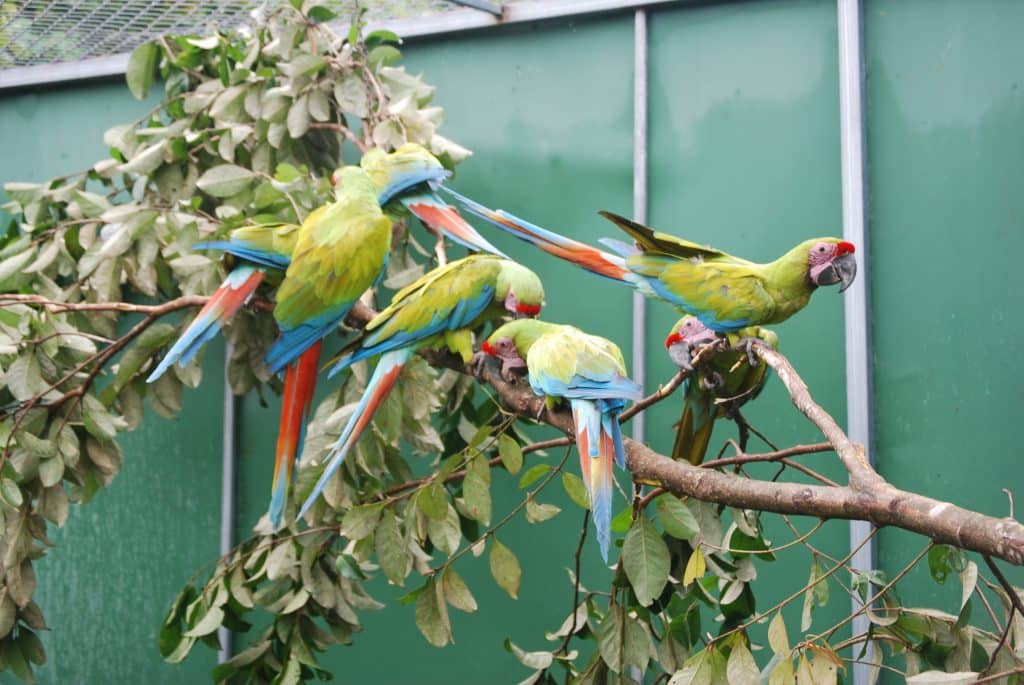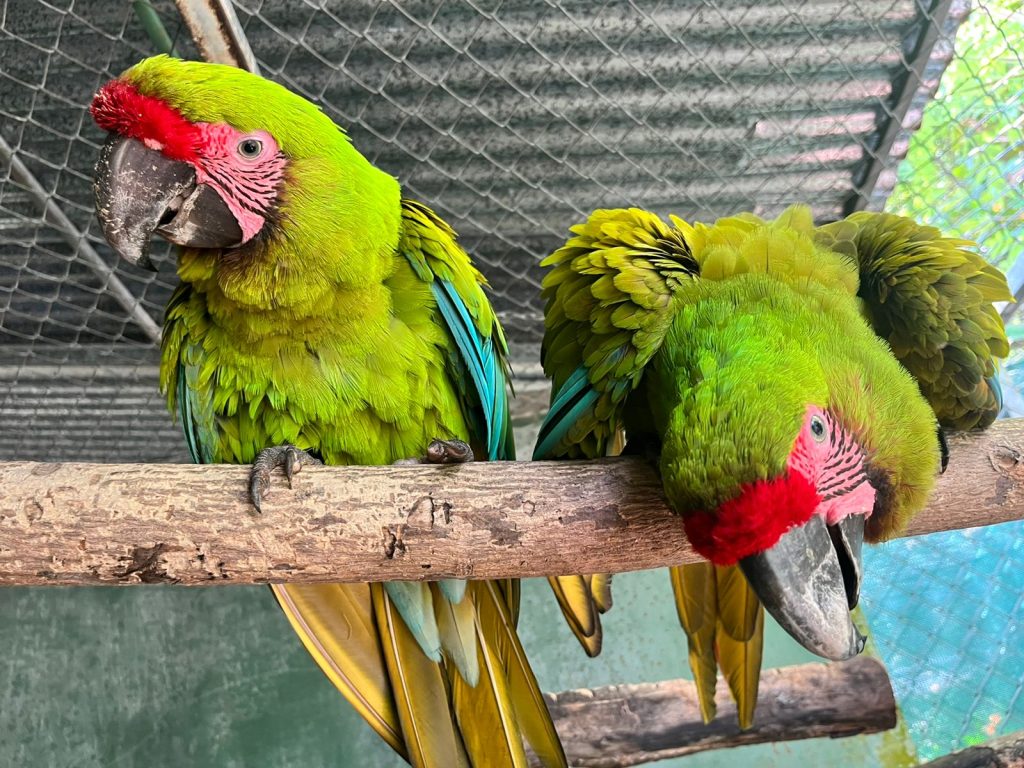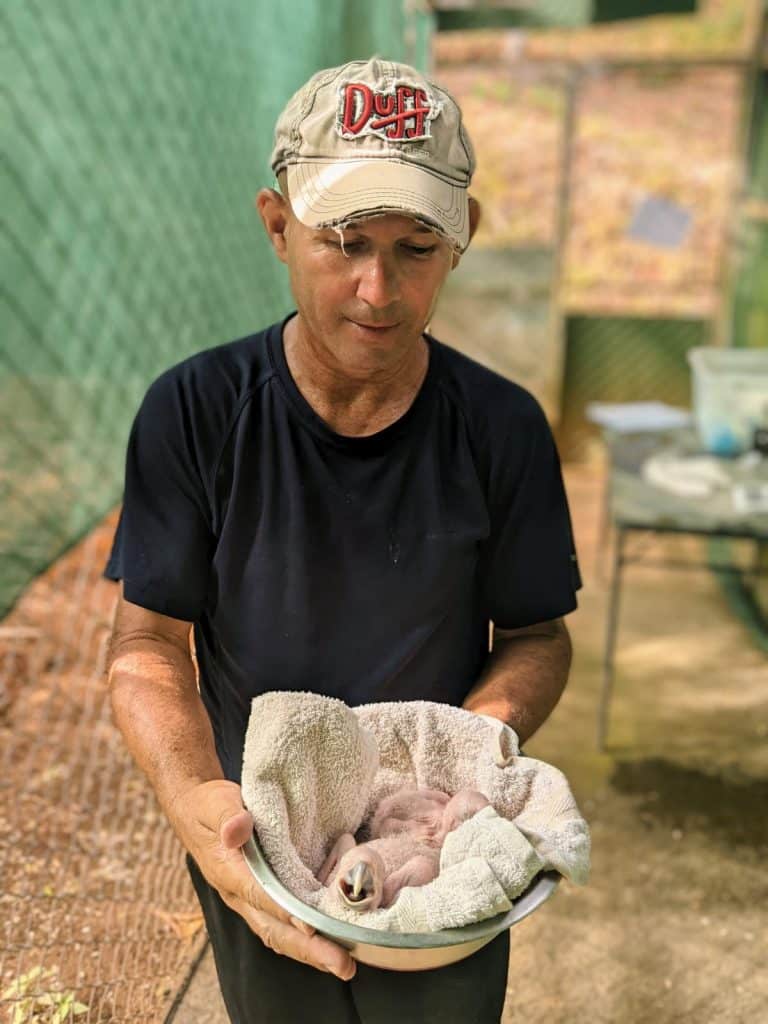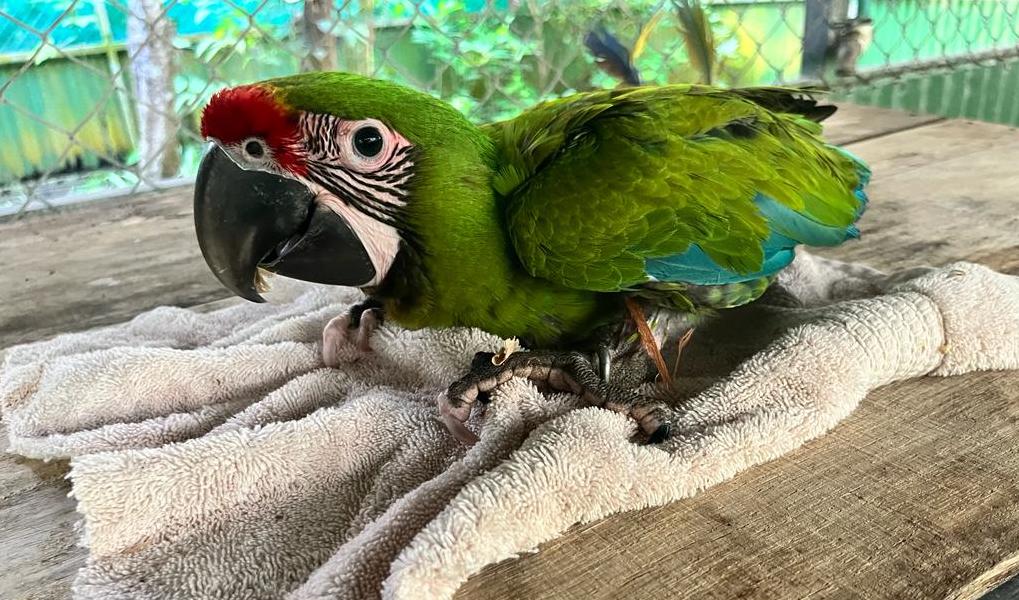Fabio Castrillo was greeted by the sparse squawking of macaws as he entered the aviary at sunrise. Some birds still slept in their nest boxes, but most woke each morning to watch the Macaw Recovery Network (MRN) team arrive with breakfast. At MRN’s Breeding Center, rescued scarlet and great green macaws that are unable to return to the wild are cared for and bred, with the goal of releasing their chicks to join Costa Rica’s wild macaw populations. As a Breeding Program Assistant, Fabio looks after the macaws in the aviary, including Lizzy and Cliff, the program’s very first pair of great green macaw foster parents.
MRN has spent years reintroducing macaws confiscated from the illegal pet trade back to the wild, but some rescued macaws, like Lizzy and Cliff, lack social skills or are physically or mentally unfit to survive in the wild. These macaws are cared for in MRN’s aviary, giving them a high-quality life where they can express their natural instincts. Their chicks will one day be released and contribute to the rebuilding of their species; this is especially necessary for Critically Endangered great green macaws, of which less than 1,000 individuals remain in the wild.
Every day at 5:30AM, Fabio and his colleagues clean the aviary, prepare food, and provide enrichment for the macaws, repeating the process again in the afternoon. During breeding season, they inspect nest boxes for any hatched chicks and provide veterinary service as needed. To prepare young macaws for release, Fabio’s team gives them flight training by hanging food or toys high up in the aviary, so they grow accustomed to flying and hanging from branches, and teach them to identify fruits they’ll encounter in the wild.
Yet some macaws, like Lizzy and Cliff, cannot have chicks of their own. Infertility is a serious concern for a species with so few remaining individuals; some macaws lay clutches that simply never hatch, and even if a full clutch of eggs successfully hatches, some parents may neglect certain chicks for unclear reasons. To prevent abandoned chicks from perishing, the Breeding Center team began placing them with macaws with infertile clutches, who were already in the parent mindset. This is very uncommon, and for Lizzy and Cliff, who had never been parents before, Fabio wasn’t sure how well they would handle their new responsibilities. But to the team’s delight, the pair have excelled as foster parents. They spend all day watching and feeding their adoptive chick, with Lizzy becoming quite the protective mother. Their chick is now 61 days old, weighs more than any other chick in the aviary, and Fabio suspects that it will be ready to leave the nest in a few weeks.
This success proves that fostering can be a viable way of supporting MRN’s goal to raise as many great green macaw chicks as possible to help the species recover. Not every macaw chick survives in the wild, but in MRN’s aviary, foster parents like Lizzy and Cliff give Fabio hope that MRN can give all their chicks a loving chance at life.
Support Macaw Recovery Network





2 Comments